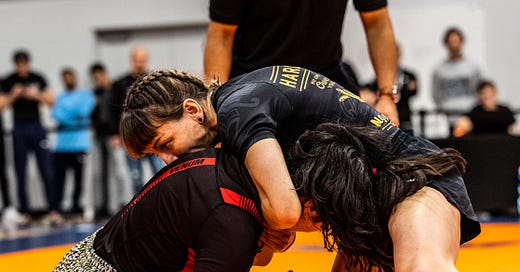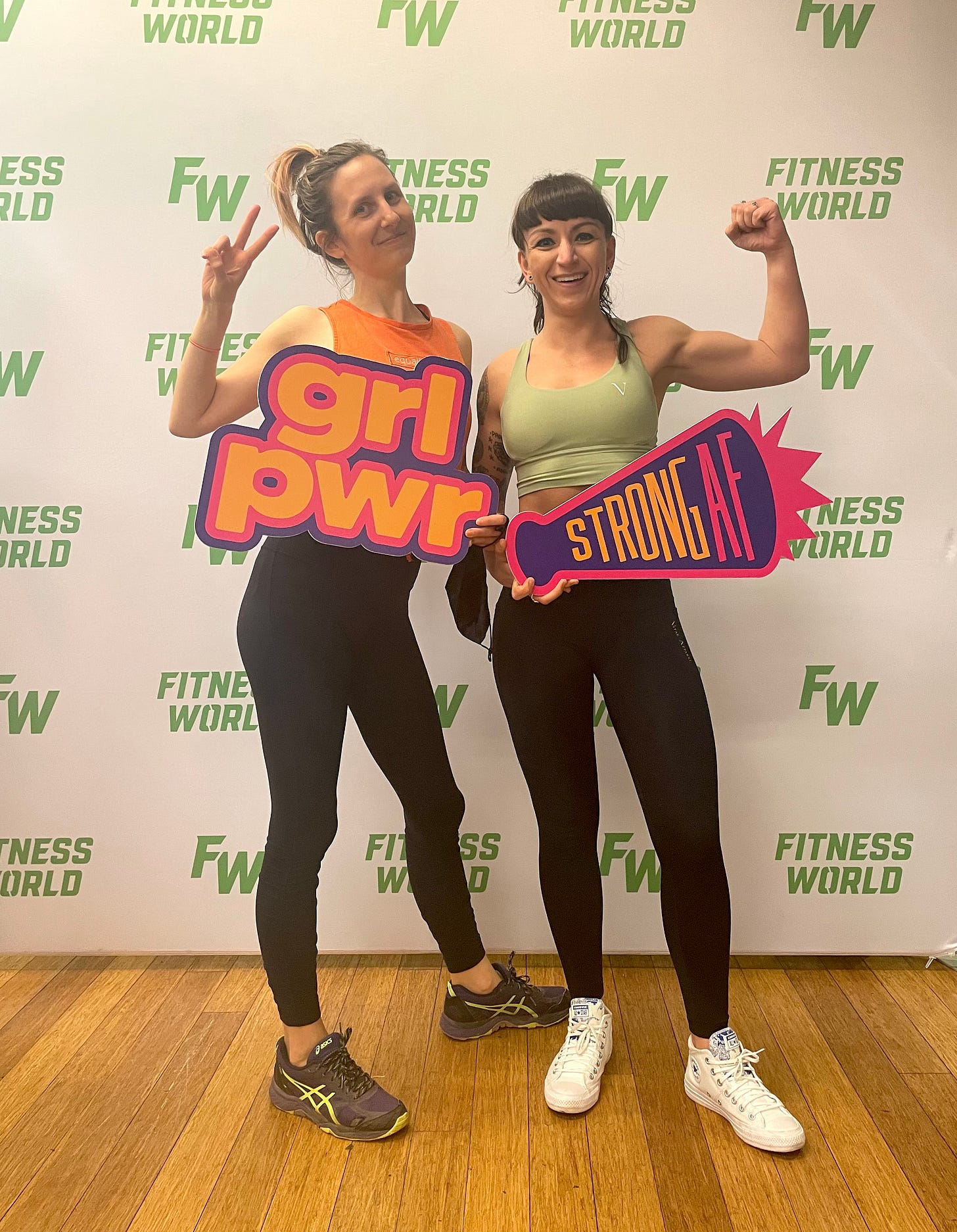A Season of Obsession: On Writing Less and Moving More
How do you know when it's time to stop doing the thing you're good at so you can do the thing that feeds your soul?
Want to listen to this post? Tune into the podcast version here.
There’s a playlist on Spotify called Music for Writing. It’s populated by gentle piano compositions with delicate phrasing and enchanting titles like A Day in June and S’embrassant. It’s enough to inspire even the most reluctant writers to pull out a journal and start scribbling out desperate soliloquies. As this winter began to close in on us, I developed a habit of cueing up this playlist every morning, with the intention that it would support my writing practice (and thus the regular updating of this Substack). Instead, it led to a near-daily endless descent into a cavern of guilt in which it became the soundtrack to doing literally everything except writing. The question of why is one I’ve only recently been able to answer in full.
Regrettably, the last thing I posted on A to Z of Altered States was written in early October. (The longer I stare at the last two words of that sentence, the closer I get to the edge of the cavern.) While I know that it’s my project to recommit myself to and I can do so at any time, it’s hard not to be consumed by the guilt of not following through. I despise that I have failed to be consistent; that it’s been an entire season since I took the time to sit at my computer and write with no expectation; that I have stacks of editorial plans, content maps, and calendars and very little to show for it. I can hold an idea in my mind’s eye and believe with every fibre of my being that it’s a good one, but believing in an idea isn’t enough to foster execution. Hoping and wishing and wanting and waiting aren’t part of the execution process either. I know after many years of doing this that I cannot sit here and try to “manifest” the motivation to write—it either is, or it isn’t. These are the behaviours I regress to when I’m striving for a destination, but I lack the fuel and resources to get there. Maps are useless with an empty tank, and by mid-October my creative reserves were bone-dry.
This is not to say that I was feeling directionless or without purpose. On the contrary, I was deep in a season of obsession, albeit with a far less cerebral activity: competitive jiu jitsu. In October and November, I competed in two local tournaments. Between training six days a week, lifting, and cutting 10 lbs to make my weight class, my body and brain were solely focused on getting competition-ready. To avoid water-loading (a miserable weight-loss technique used by fighters to shed several pounds in a short time), I tracked everything I ate for almost two months. Physically, I was in the best shape of my life. Mentally, I felt sharper than ever. Emotionally, I’d never felt more regulated. But creatively, everything I had was going into my game plan. The thought of spending several hours a day sitting in a chair smashing words together to make a deadline I’d set for myself just to appease my ego was enough to make me feel ill.
It took me a while to conclude that in choosing to spend more time moving my body, it had inevitably become more challenging for me to sit still, and thus, to write. For several years, I had no problem sitting in front of my computer and disassociating from my body for eight to ten hours while writing about the discovery of a new psychedelic drug or emerging clinical research on a novel treatment. I could switch from copywriting projects to reporting assignments on a dime and manage back-to-back interviews and Zoom calls effortlessly. Did I eat consistently, or set a timer to get out of my chair every now and then? Absolutely not—but I had unwavering faith in my ability to get shit done, because I knew that if it was required of me, I could unplug from my body and meet the deadline. Disassociation was the norm. Things began to shift after I started making physical exercise a mandatory part of my day. As it took priority over my work, I became less interested in what felt like a daily beheading just to write. This feeling was amplified when it came to this well-intentioned self-generated project. I also began to realize how out of alignment it felt to be writing about tools for healthy living while doing one of the unhealthiest things this modern life has to offer: sitting in a chair and staring at a computer screen for extended periods of time. Something had to change.
I wish I could tell you that this was the first time I’d sensed that writing would no longer be my main gig, but it wasn’t. I can pinpoint the exact moment that feeling began.
On March 8, 2022, I was invited to attend a private fitness class for International Women’s Day. At that point, I had been working out in my living room for the better part of two years (thanks, Covid) and I’d gotten very comfortable with my movement routine. Too comfortable. I knew that it wasn’t serving me anymore. I accepted the invitation and brought my friend Wendy as my plus-one. I didn’t know it then, but the 55-minute group fitness class was about to change the trajectory of my life.
We walked into the classroom just as it was about to start, and I scanned the room for the trainer leading the class. “Heavier weights at the back of the room if you want to be challenged,” she said with a wink in our direction. I nodded and eagerly scrambled to the last row of mats. The woman leading the class was short, feisty, and loud, and I immediately felt a sense of kinship with her.
The class was a blast. Maybe it was because I was surrounded by other women, or maybe it was the fact that I was next to a good friend whom I knew needed to sweat just as much as I did, but the energy in that room lit a fire in me. I’d never been to a fitness class where the trainer possessed such a palpable desire to be there. You could say it was contagious because, by the time it was over, I wanted to be her. I wanted to stand at the front of a room and command that kind of attention. I wanted to study the body and be able to prescribe movement. Overwhelmingly, I wanted to walk away from my journalism job and move my body for a living. Unfortunately, this was eight months before the release of my book, Psyched, and I knew I’d have to hang on for a little longer before making any serious career transitions.
Later that month, I went on a psychedelic retreat in Death Valley, California, where these feelings were confirmed and clarified. I knew I didn’t want to spend the rest of my life writing about psychedelics, especially the “business” of psychedelics. When I got home, I was unexpectedly let go from my biggest freelance gig, where my focus had been on—you guessed it—the business of psychedelics. (Thank you, universe; sign received.)
Though I have been resistant, I have been on an unstoppable trajectory of writing less and moving more for nearly two years now, and relearning over and over along the way that the more I resist, the more evident it is my life so desperately needs this change. In November, to prove to myself that I was still capable of being a “professional writer”, I made one last-ditch effort to reach out to editors with pitches and requests for opportunities. Maybe I just needed to have an external motivator, I thought to myself – but none of my attempts were fruitful. Follow-ups were met with silence and a few editors even emailed me back to say they no longer had the capacity to take on freelancers. I knew at this point that it was time for me to release my grip on the thing I knew I didn’t really want anyway. I’d had enough. I stopped listening to Music for Writing every morning, made peace with my temporary absence from Substack, and signed up for a personal training course later that week.
I’ll be a certified personal trainer and group fitness instructor before the winter is over. Am I mad that I haven’t been able to write as consistently as I planned to? A little. I let myself down, and more importantly, I let you down. But in permitting myself to spend time away from this platform, I’ve been able to follow through on the fire that was ignited in my gut in that group fitness class. Acting on my desire is fuelling me in a new way. Now that learning the skills to enact this passion is something I can cross off my list, writing is easier. There’s less tension between what I want, what I don’t want, and what I’m capable of. There’s less fear. And while the guilt isn’t entirely gone, it’s now less of a cavern and more of a pothole.







Writing will always be part of your life, but I'm glad you've discovered it doesn't have to BE your life. Congrats on your upcoming certification!